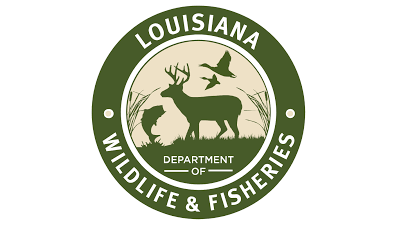Louisiana hunters submitted 2,226 samples for CWD testing in 2022-23
Published 1:00 pm Tuesday, February 7, 2023
|
Getting your Trinity Audio player ready...
|
TENSAS PARISH — James LaCour, State Wildlife Veterinarian for Louisiana Department of Wildlife and Fisheries, reported two more cases of Chronic Wasting Disease were detected in Tensas Parish. This brings the state total to 10 positives since first detection in Dec. 2021.
LaCour and deer program manager Johnathan Bordelon gave an update on CWD at the February commission meeting last Thursday. LDWF has collected 2,226 samples this year statewide with 296 samples currently pending. CWD Management area Franklin Parish had 84 samples tested with 35 pending, Madison Parish had 163 samples tested and 45 pending and Tensas Parish had 391 samples tested with 136 pending. All positive detections have been in Tensas Parish with eight cases confirmed at a national laboratory.
A majority of the CWD positive deer were bucks. Two positives were 4.5 year old bucks, four were 5.5 years old and one was 7.5 years old. They were all hunter-harvested. The other positives were a 1.5 year old, 3.5 year old and 5.5 year old does. Louisiana’s positives were found close to the Mississippi River and Claiborne County. One commissioner asked LaCour if they had any way of testing the soil around the positives.
“There is a new test that is being evaluated right now called RT quick. It might become an official test through the USDA. It is more sensitive. You put tissues or chemicals into the water and vibration makes the prions multiply and makes them easier to detect in soil,” LaCour said. “It is on the horizon. We picked up dirt from positive locations and other sites and when the technology becomes available we will look at it.”
Louisiana will continue to send CWD positive deer to have their DNA tested to ensure they are area deer and not a pen escape with a northern lineage. They are looking for another lab to conduct those DNA tests after Texas A&M University handled the first DNA test last year. It took eight months for the results to come in from TAMU.
Here are some key figures to consider, a cooler in Waterproof has collected 29 samples this year. Louisiana paid $46 per sample to get the samples tested for CWD this year. 28 citations have been issued for feeding ban violations and five citations were issued for violations of the carcass exportation ban in the CWD control area.
One way Louisiana has responded to CWD positive detections is enrolling affected hunting clubs into the tier 1 DMAP which enables them to hunt deer until February 15 in order to collect more samples. Outreach, participating taxidermists and cooler locations are other ways they have responded to the disease.
“Every decision we have made is the best one we could make. The National Deer Association gave us an award for our efforts,” LaCour said. “Unlike other states, political pressure has not changed our actions. We have stuck to our guns.”
Louisiana has a reciprocal agreement with the Mississippi Department of Wildlife, Fisheries and Parks to test deer on Mississippi and Louisiana’s respective sides of the Mississippi River. LaCour said this was done so people did not have to travel a long distance to get to Mississippi and risk spreading the disease.






